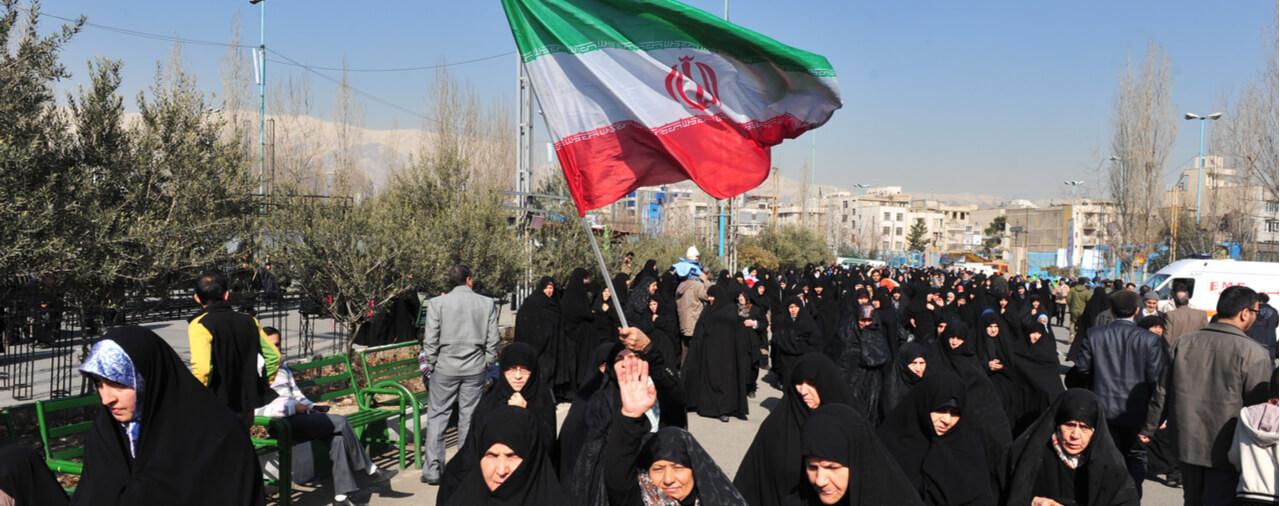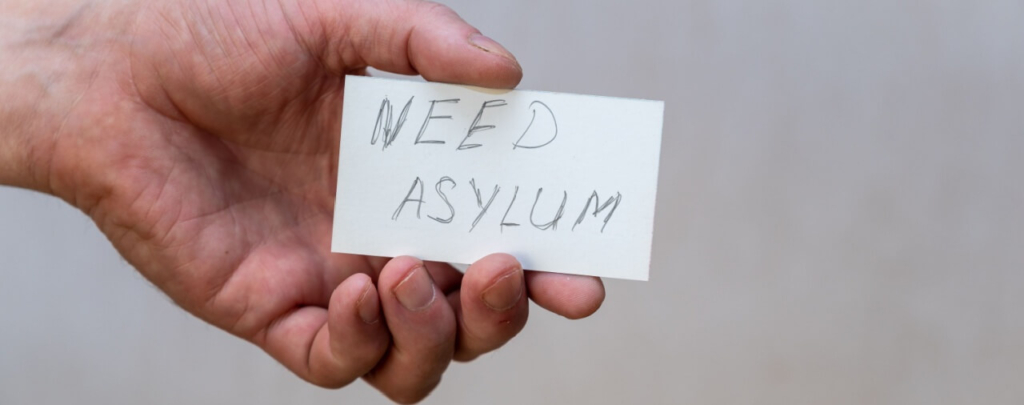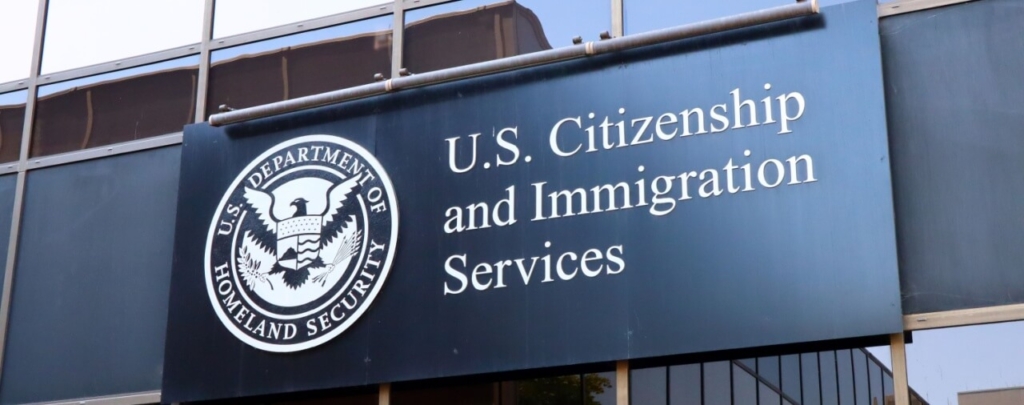Over the past week, people in Iran have taken to the streets to protest the dire economic situation in the country and government malfeasance. According to a report by Kim Hjelmgaard of USA Today, Iranian media has stated that “[a]t least 20 people have died and 450 have been arrested in the nationwide protests that began [on December 28, 2017] in Mashaad and spread to other cities…” [link].1 To be sure, no one would be surprised if the “Iranian media” cited to in the report is under-selling the situation.
In several more political pieces on the site, I have noted that Iran is the world’s leading state-sponsor of terrorism. However, the geopolitical issues involving the threat that the Iranian regime poses to the world should not overshadow its brutal oppression of its own people at home. Speaking from experience as an immigration attorney who focuses extensively on U.S. asylum and refugee law, I can say with confidence that any experienced U.S. immigration attorney in these areas has been confronted with the human rights situation in Iran.
In 2009, the people of Iran rose up to protest election fraud in Iran and were met with force from the Iranian Government. At that time, both the United States and many of its Western allies were disappointingly circumspect in aligning the peaceful protesters with the repressive Iranian Government and its Islamic Revolutionary Guard. Fortunately, the United States Government is taking a different approach on this occasion.
Vice President Mike Pence made clear that the Trump Administration would be adopting a new posture regarding its response to the Iran protests:
[Click image to view full size]
As he is apt to do, President Trump has used his Twitter account to comment often on the situation in Iran over the past week. The following is one example:

Here, President Trump makes a sound point. Many U.S. Government officials and pundits who backed the Iran nuclear accord argued that the Iranian Government would spend the money it obtained as a result of the agreement on domestic programs. For example, here is a passage from former President Barack Obama on August 5, 2015, taking this very position:
Iran’s leaders have raised expectations of their people, that sanctions relief will improve their lives. Even a repressive regime like Iran’s cannot completely ignore those expectations, and that’s why our best analysts expect the bulk of this revenue to go into spending that improves the economy and benefits the lives of the Iranian people. Now, this is not to say that sanctions relief will provide no benefit to Iran’s military. Let’s stipulate that some of that money will flow to activities that we object to.2
While the former president did acknowledge that some of the money from the Iran nuclear accord would be spent on the military, he stated that it was his position and that of his administration that “the bulk” of the money would be spent on the Iranian people. However, as President Trump noted, the Iranian people today are risking their lives to disclose that the non-representative Iranian Government is in fact not spending its newfound wealth on improving the lives of the citizenry. As we see in the protests, many people in Iran are determined to force the government to cease “ignoring [their] expectations,” an outcome that the then-President Obama suggested that his administration did not foresee.
The potential import to the Iranian people of the United States’ recognition of the protests and their cause should not be minimized. According to a Wall Street Journal report, summarized at Newsmax, “[s]ome Iranians have shared President Donald Trump’s tweets supporting the protesters…” [link].3 While it also notes that many Iranians still “distrust Trump,” it is unsurprising to see that many Iranians see having the President of the United States shine a spotlight on their plight as a benefit.
Fortunately, the Trump Administration is doing more than just tweeting. According to the aforementioned report, it is also “lobbying countries around the world to support protesters in Iran as violent demonstrations intensify…” To this effect, Brian Hook, the U.S. Department of State’s (DOS’s) director of policy planning stated that “[w]e are encouraging all nations around the world to publicly condemn the government violence and to support the legitimate, basic rights of those protesting…” He added that “[w]e want to take a position with moral clarity and let the protesters know that they’re not alone.” While I have criticized the DOS recently on its response to President Trump’s decision to recognize Jerusalem as the capital of Israel [see blog], it has certainly been a beacon of “moral clarity” with regard to the current situation in Iran. The following is a December 29 statement on the protests from DOS Spokeswoman Heather Nauert:
[Click image to view full size]
Unfortunately, thus far much of the world has been slow to respond. For example, on January 1, Hillel Neuer of UN Watch noted that the United Nations has been disappointingly, albeit unsurprisingly, silent on the situation in Iran:

The UN’s silence was also noted by U.S. Ambassador to the UN Nikki Haley, who called for an emergency security council meeting on the subject and stated:
The people of Iran are crying out for freedom… All freedom-loving people must stand with their cause. The international community made the mistake of failing to do that in 2009. We must not make that mistake again.4
Like Neuer, Ambassador Haley also noted the added significance of the silence of the UN Human Rights Council, which is always quick to condemn Israel for just about anything.
Ironically, the leader of the UN’s main target of ire, Israel’s Prime Minister Benjamin Netanyahu, issued a powerful statement in support of the Iranian people and criticizing “many European governments” who “watch in silence”:
Whether the world was mostly silent on the 2009 protests in Iran due to a push for the Iran nuclear accord, as Israel’s MK Michael Oren suggested, or for other reasons, the “moral clarity” being shown by several organs of the Trump Administration regarding the Iran protests is refreshing.5 The Iranian regime is little better to its own people than it is to those around the world it terrorizes directly or indirectly through proxies. Standing with the protesters is not only the right thing to do, but it is in the strategic interest of the free world as well.
As I noted earlier, Iranians feature prominently among the nationalities of individuals seeking asylum and refugee status in the United States [see category]. We discussed an interesting situation involving an Iranian national who had gained a green card after being an asylee and sought a second green card so that the Iranian government would not discover that he had been granted asylum in the United States [see section]. For those interested, we also have articles discussing how the travel restrictions in President Trump’s September 24 proclamation [see article] and the new refugee rules [see article] affect Iranian nationals.
- Hjelmgaard, Kim. “Iran’s Supreme Leader Ayatollah Khomeini blames ‘enemies’ for meddling in protests.” USA Today. Jan. 2, 2018. usatoday.com
- Washington Post Staff. “Full text: Obama gives a speech about the Iran nuclear deal.” Washington Post. Aug. 5, 2015. www.washingtonpost.com/news/post-politics/wp/2015/08/05/text-obama-gives-a-speech-about-the-iran-nuclear-deal/?utm_term=.2470825e4fb3
- Burke, Cathy. “White House Urges World-Wide Support for Iran Protesters.” Newsmax. Jan. 1, 2018. newsmax.com
- Gehrke, Joel. “Nikki Haley: The UN ‘must speak out’ to support protesters in Iran.” Washington Examiner. Jan. 2, 2018. washingtonexaminer.com
- Id.







